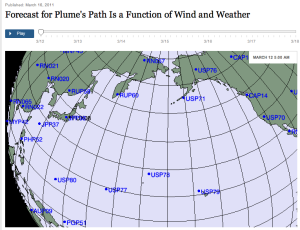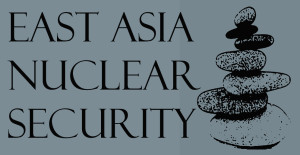Daily Report Archives
Established in December 1993, the Nautilus Institute’s *N*ortheast *A*sia *P*eace and *S*ecurity *N*etwork (NAPSNet) Daily Report served thousands of readers in more than forty countries, including policy makers, diplomats, aid organizations, scholars, donors, activists, students, and journalists.
The NAPSNet Daily Report aimed to serve a community of practitioners engaged in solving the complex security and sustainability issues in the region, especially those posed by the DPRK’s nuclear weapons program and the threat of nuclear war in the region. It was distributed by email rom 1993-1997, and went on-line in December 1997, which is when the archive on this site begins. The format at that time can be seen here.
However, for multiple reasons—the rise of instantaneous news services, the evolution of the North Korea and nuclear issues, the increasing demand for specialized and synthetic analysis of these and related issues, and the decline in donor support for NAPSNet—the Institute stopped producing the Daily Report news summary service as of December 17, 2010.

The earthquake and tsunami of March 11, 2011 did more than just devastate Japan and unleash a local nuclear disaster. Peter Hayes notes that the events at the Fukushima nuclear plant exposed a host of design flaws in current nuclear technology whose solutions are linked to dramatically unsettling security issues.
Peter Hayes is Executive Director of the Nautilus Institute for Security and Sustainability.
Go to the article

James Goodby and Markku Heiskanen write “that the time for a more active diplomacy in the Korean Peninsula is approaching. And that refers not only to solving the North Korean nuclear issue but also to several legacies dating from World War II and the Korean War. The ultimate goal should be to sign a peace treaty to end formally the Korean War, which concluded only with an armistice agreement in 1953, and to reunify Korea in one way or another. There is some well-founded hope that the year 2012 could open a new era in multilateral efforts to finally construct a new post-Cold War political and security architecture in Northeast Asia.”
James Goodby is former US Ambassador to Finland. He does not speak for the current administration. He is a member of the American Academy of Diplomacy.
Markku Heiskanen is former senior Finnish diplomat, and currently Senior Associate and Program Director of The Asia Institute at the Kyung Hee University in Seoul.
Go to the article

Roger Cavazos writes, “Zhang Dejiang’s ascension as Party Chief in Chongqing is modeled on a proven formula fo…
Go to the article

Hiromichi Umebayashi, President of the Peace Depot, assesses the prospects for a Northeast Asian Nuclear Weapons Free Zone (NEA-NWFZ) and the applicability of lessons learned during the establishment of similar treaties in other regions of the world. He writes, “there are specific wisdoms to be found in the existing NWFZ treaties . . . One is related to the provision for the entry-into-force of the treaty. If one or more state parties have concern about others’ possible noncompliance with a hard-woven NEA-NWFZ treaty, one could invent a . . . certain kind of waiving system such as the one adopted in the Tlatelolco Treaty. Also, learning from the precedent of ABACC, it seems worthwhile to re-examine the possibility of South-North (North-South) Joint Nuclear Control Commission, which is stipulated by the 1992 Joint Declaration on the Denuclearization of the Korean Peninsula, or its modification, as the first step of confidence building measures in the region.”
This report is from the East Asia Nuclear Security workshop held on November 11, 2011 in Tokyo, Japan.
Papers and presentations given at the East Asia Nuclear Workshop are available here, along with the full agenda, participant list and a workshop photo gallery.
Go to the article
Colin McAskill acted as an advisor for a decade during the period of the ‘Bullion Shipments’ into London and acted as a mandated representative for the DPRK during the Banco Delta Asia banking crisis in Macau. In this article Colin writes, “The stability established by a smooth transition of power has created a window of opportunity to put the past behind and re-open a new phase of negotiations to put in place a lasting agreement that would launch a nuclear free Korean Peninsula, and usher in a new era of peaceful coexistence. Given KJ-U’s young age, this opportunity may not reoccur for a very long time.
Go to the article

Thomas Graham, Jr., former U.S. Ambassador and Executive Chairman of the Board, Lightbridge Corp, reviews the status of the current nonproliferation regime and assesses the impacts that a Northeast Asian Nuclear weapons free zone could have on lessening the threat North Korea poses to that regime. He states that such a zone “could be a large step forward for peace. All avenues toward this laudable but seemingly very distant objective should be examined. The Treaty of Tlatelolco is a possible model that could be considered.”
This report is from the East Asia Nuclear Security workshop held on November 11, 2011 in Tokyo, Japan. The workshop aimed to evaluate the robustness of proposals to establish a nuclear weapons-free zone in Northeast Asia (NEA-NWFZ) and to identify pathways leading to its creation. The workshop was organized by the Nautilus Institute, the Maureen and Mike Mansfield Foundation and Nautilus Australia – RMIT Global Studies, and co-hosted by the Asia Pacific Leadership Network.
Papers and presentations given at the East Asia Nuclear Workshop are available here, along with the full agenda, participant list and a workshop photo gallery.
Go to the article





